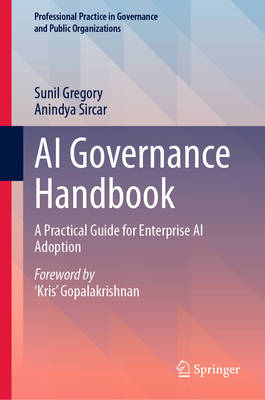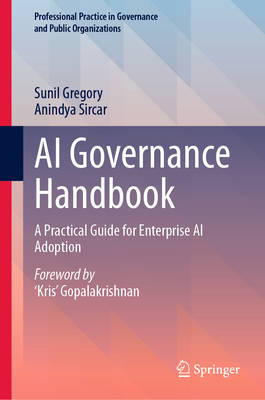
Bedankt voor het vertrouwen het afgelopen jaar! Om jou te bedanken bieden we GRATIS verzending (in België) aan op alles gedurende de hele maand januari.
- Afhalen na 1 uur in een winkel met voorraad
- In januari gratis thuislevering in België
- Ruim aanbod met 7 miljoen producten
Bedankt voor het vertrouwen het afgelopen jaar! Om jou te bedanken bieden we GRATIS verzending (in België) aan op alles gedurende de hele maand januari.
- Afhalen na 1 uur in een winkel met voorraad
- In januari gratis thuislevering in België
- Ruim aanbod met 7 miljoen producten
Zoeken
€ 167,95
+ 335 punten
Omschrijving
Enterprise AI represents a transformative moment in technology, empowering businesses to unlock the potential of data, automation, and advanced analytics. It drives innovation, streamlines operations, and amplifies competitiveness in an increasingly digital economy. Yet, as promising as this technology is, adopting Enterprise AI is no simple feat. It demands a strategic alignment of AI initiatives with organizational goals while addressing many complex risks and challenges. Businesses face a new frontier of operational dilemmas, from algorithmic bias and data privacy concerns to the legal and ethical quandaries of AI-generated content. Questions of accountability for AI actions, intellectual property rights, and the threat of data laundering or AI hallucinations further complicate the landscape. Amid these challenges, enterprises are tasked with navigating a "pre-regulatory era," where global authorities are racing to establish policies and frameworks for a trustworthy and lawful AI ecosystem. The AI Governance Handbook is a comprehensive guide tailored for stakeholders at the forefront of AI adoption executives, managers, data scientists, engineers, and compliance professionals. This essential resource provides the knowledge, tools, and strategies to lead organizations through the complexities of implementing AI responsibly and effectively. Packed with actionable insights, the handbook explores critical topics such as aligning AI strategies with organizational objectives, managing ethical dilemmas, adhering to emerging regulations, and fostering transparency in AI operations. It offers readers a roadmap to build a resilient and dependable AI framework prioritizing fairness, accountability, and innovation.
Specificaties
Betrokkenen
- Auteur(s):
- Uitgeverij:
Inhoud
- Aantal bladzijden:
- 271
- Taal:
- Engels
- Reeks:
Eigenschappen
- Productcode (EAN):
- 9783031892653
- Verschijningsdatum:
- 15/08/2025
- Uitvoering:
- Hardcover
- Formaat:
- Genaaid
- Afmetingen:
- 156 mm x 234 mm
- Gewicht:
- 594 g

Alleen bij Standaard Boekhandel
+ 335 punten op je klantenkaart van Standaard Boekhandel
Beoordelingen
We publiceren alleen reviews die voldoen aan de voorwaarden voor reviews. Bekijk onze voorwaarden voor reviews.









